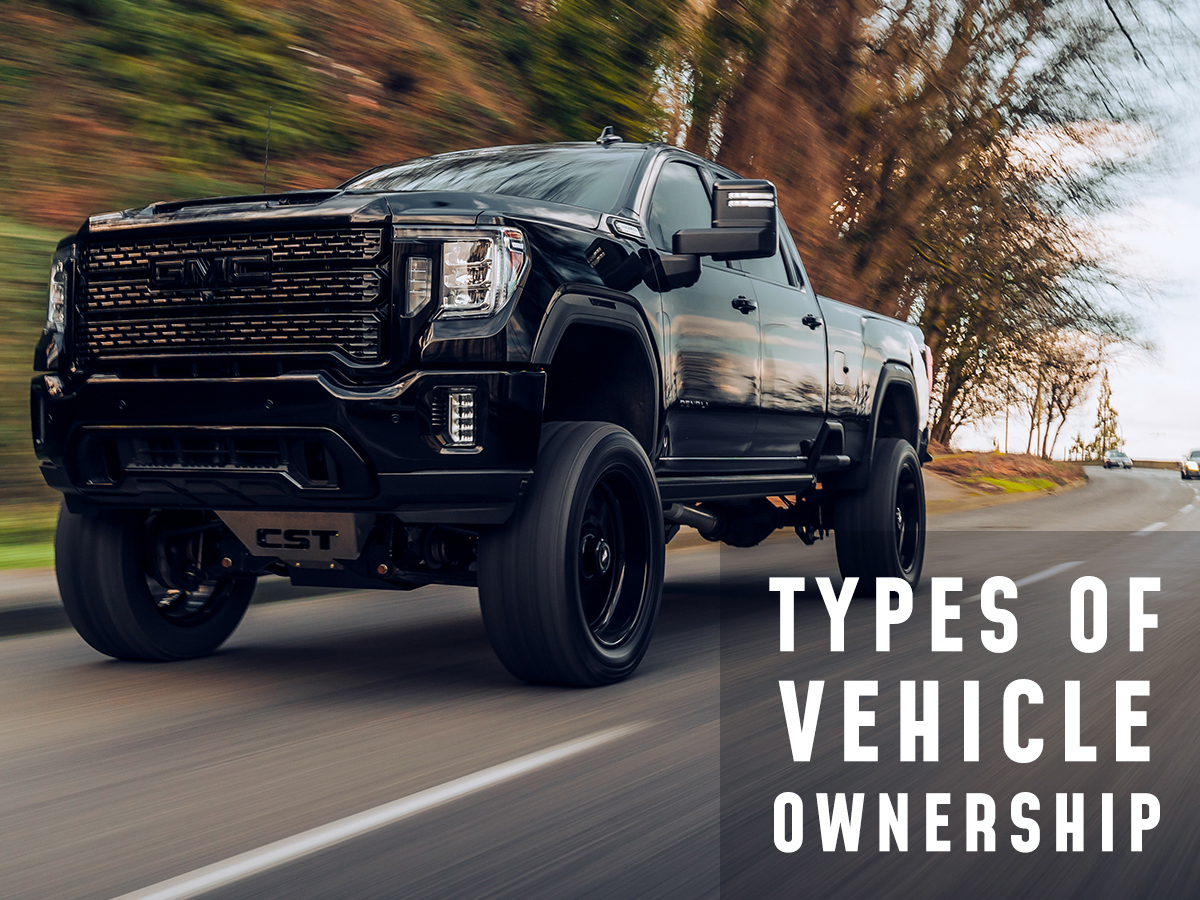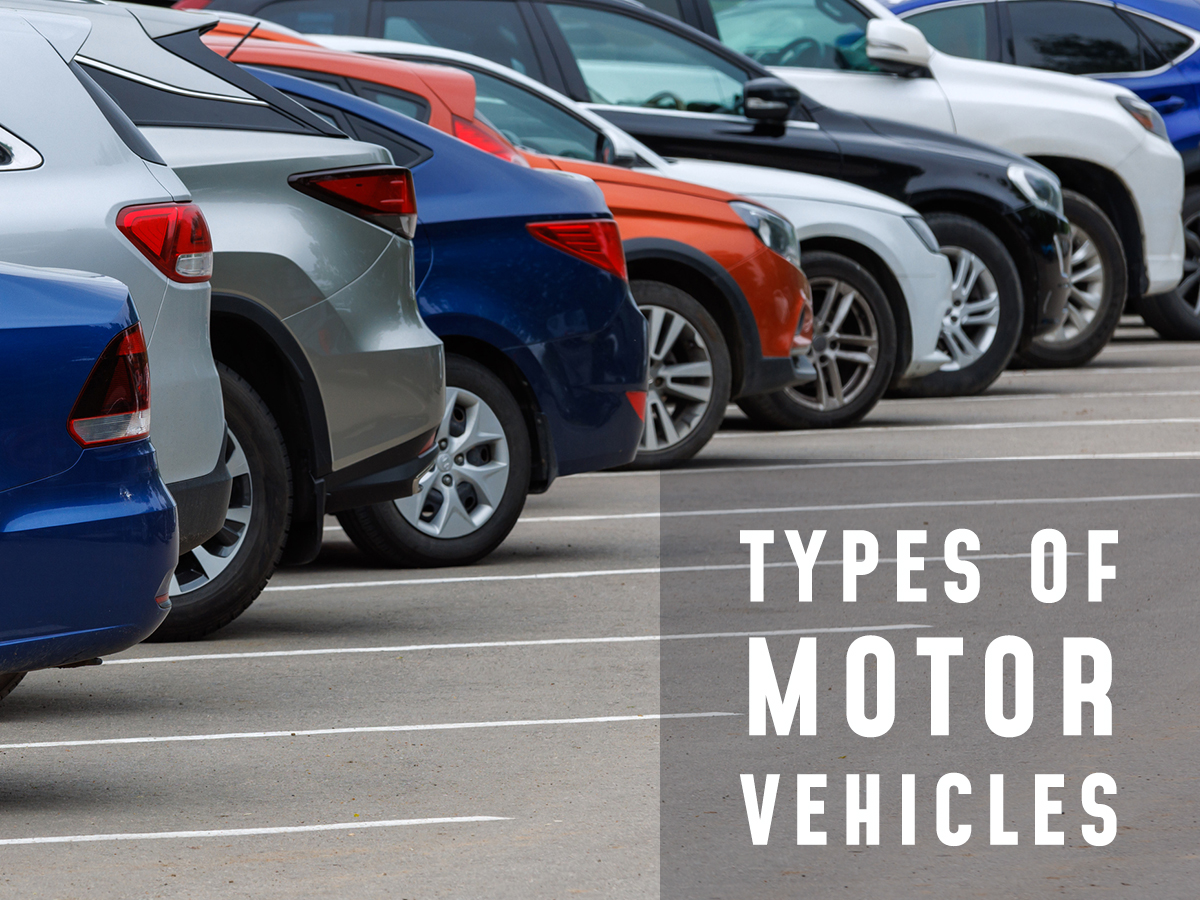Vehicle ownership is an important decision that individuals and businesses have to make. Given that it comes with various responsibilities, understanding the different types of vehicle ownership can help you choose the option that suits your needs and preferences.
So, in this article, we will explore the different types of vehicle ownership as well as how to lease, rent, and finance your car, so you can have a clear understanding of each option's pros and cons. But first things first, let’s look at what vehicle ownership is.
What is Vehicle Ownership?
Vehicle ownership refers to the legal possession and control of a vehicle and gives individuals the right to use and manage the vehicle as they see fit. You can customize it, use it whenever you want, and sell it whenever you deem necessary.
It also provides a sense of independence and freedom, allowing you to go wherever you want at any time. But this isn’t the only benefit that comes with owning a vehicle. So let’s take a look at what vehicle ownership could do for you!
The Benefits of Vehicle Ownership
Vehicle ownership is essential for individuals and businesses that rely on transportation. But not only can this allow you to move from place to place, there are also other benefits you can obtain from owning a vehicle, including:
- The cost-effectiveness compared to other means of transportation.
- The freedom to travel at your own pace and schedule.
- The ability to carry out multiple tasks on a single trip, saving you time and effort.
- The ability for companies to transport goods and reach customers efficiently.
- The elimination of the need to rely on third-party services.
Vehicle ownership provides freedom, convenience, and control over transportation. However, it also comes with some financial responsibilities that need to be considered. So let’s dive into some of the long-term costs that come with owning a car.
The Financial Responsibilities of Vehicle Ownership
Owning a vehicle does not only involve the initial cost of the vehicle; there are also other expenses that come with vehicle ownership, which include:
- Service check-ups
- Oil changes
- Car Insurance
- Vehicle registration fees
- And tire replacements
These costs can add up over time, especially if you own multiple vehicles or high-end models. However, some types of vehicle ownership can be less expensive than others. So let’s take a look at the three main types of vehicle ownership to see which one best suits your needs.
The 3 Types of Vehicle Ownership: Examining the Differences
When it comes to vehicle ownership, there are three main types of licenses you can obtain. So let’s take a closer look at each one to help you determine which is best suited for you.
Individual Ownership
Individual ownership is when you purchase a vehicle and are solely responsible for its ownership and management. Let’s look at the pros and cons that come with sole ownership to determine if it’s the way to go for you!
| Pros | Cons |
| You can personalize it according to your preferences. | It has high upfront costs, including the purchase price, insurance, and registration. |
| You don't have to rely on anyone else for decision-making or vehicle usage. | Selling the vehicle can be challenging as a sole owner. |
| You don’t have to rely on iffy transportation methods. | You are solely responsible for the maintenance and upkeep, which could get expensive. |
Now if these pros and cons are something you are willing to handle, let’s explore how to obtain individual ownership, which begins with selecting the desired vehicle by researching different makes and models and considering factors such as price, fuel efficiency, and safety features.
Once you have chosen a vehicle, you need to arrange financing, which may involve applying for a loan from a bank or exploring other financing options, such as leasing. When financing, review the terms and conditions to ensure that it aligns with your financial situation and goals.
Remember to complete all the legal formalities, including registration and insurance. Finally, you can enjoy the freedom and convenience that individual ownership brings. However, if this option seems too expensive, you can also consider joint ownership.
Joint Ownership
Joint ownership allows multiple individuals to own and share the responsibilities of a vehicle, which is ideal for people who frequently use the same vehicle, given that it can help distribute the financial burdens and make vehicle ownership more affordable.
Establish clear guidelines and agreements written among the co-owners, which include each person's share of ownership, responsibilities, and rights, to avoid any potential conflicts in the future. Now let’s take a look at some pros and cons that come with joint ownership.
| Pros | Cons |
| It offers flexibility in terms of usage. | Conflicts may arise among co-owners. |
| It allows for greater convenience and accessibility. | It requires a high level of trust and open communication among the co-owners. |
| It is more affordable given you split the costs. | One co-owner may not want to sell, leading to difficulties. |
| It promotes shared decision-making and facilitates coordination between the owners. | In case of accidents or emergencies, you are both responsible. |
It’s essential to establish clear guidelines, maintain open communication, and address any concerns that may arise to ensure a successful and harmonious joint ownership experience. Now, if joint ownership isn’t for you, let’s take a look at company ownership.
Company Ownership
When it comes to company ownership, the vehicles are owned by the company and are primarily used for business-related activities. The process of obtaining this type of ownership involves careful decision-making, given that the company needs to assess its needs.
They need to consider factors such as the number of vehicles required, the type of vehicles suitable for the business, and the budget available for the purchase. Once the company has determined its requirements, they can proceed with the acquisition process.
The acquisition involves researching different vehicle options, negotiating with dealerships, and ultimately purchasing the chosen vehicles. Now let’s take a look at some pros and cons that come with company vehicle ownership.
| Pros | Cons |
| It allows companies to take advantage of tax deductions. | The initial investment can be quite significant, straining the company's cash flow. |
| They serve as a mobile advertising platform, creating brand awareness wherever they go. | Servicing, repairs, and insurance can add up over time, impacting the company's cash flow. |
| It provides greater control over their assets by implementing specific guidelines for vehicle usage, which helps prevent misuse of the vehicle. | The company is responsible for ensuring that the vehicles comply with all safety requirements leading to potential liability in the case of an accident. |
Despite the disadvantages, many companies find that the benefits of company ownership outweigh the drawbacks, given that it provides them with the flexibility and control they need over their transportation needs, contributing to the success of their operations.
Now that we have understood what vehicle ownership is, the benefits of owning a vehicle, the potential financial responsibilities, and the different types of ownership you can acquire, let’s take a deeper look into how to actually acquire a vehicle.
What is Vehicle Financing?
Vehicle financing involves borrowing money from a lending institution, such as a bank or credit union, to purchase a vehicle, allowing you to pay for your vehicle in installments over a set period.
When considering vehicle financing, keep in mind that it allows you or your company to establish a credit history and preserve cash flow, but you will have to pay monthly interest and your vehicle will depreciate over time, making it an expensive but quick option.
So if you aren’t quite ready for vehicle financing, let’s take a closer look at some other options, like leasing or renting, so you can make an informed decision that aligns with your personal preferences and finances.
How to Lease a Vehicle
When it comes to acquiring a vehicle, leasing offers a different approach, given that it allows individuals or businesses to use a vehicle for a specified period, typically 2 to 4 years, while making monthly lease payments.
Instead of purchasing a vehicle, leasing provides a more flexible option, allowing you to use the vehicle for a specific period without the long-term commitment and expenses that come with vehicle ownership.
This isn’t the only perk to leasing, as the monthly payments also tend to be lower given that you are paying for the depreciation of the vehicle during the lease term. And since the payments are lower, you may also be able to acquire a car that is on the higher end of the range.
However, leasing does have its drawbacks. When you lease a vehicle, you are not allowed to make any alterations to the car, which means that you cannot add things like custom rims, tinted windows, or a personalized paint job.
Furthermore, unlike purchasing a car, where you build equity as you make payments, leasing does not provide the same opportunity. So consider your specific needs and circumstances when deciding whether to lease or purchase a vehicle.
How to Rent a Vehicle
Vehicle rental involves temporarily renting a vehicle from a rental company, making it a convenient option for individuals who need a vehicle for a specific duration, such as vacations, business trips, or when their own vehicle is undergoing repairs.
You can choose the type of vehicle that suits your needs without making long-term commitments, and the rental companies usually handle maintenance and insurance. However, renting can be expensive in the long run compared to other ownership options, so consider your finances before going this route.
Choosing the Right Type of Vehicle Ownership
Choosing the right type of vehicle ownership depends on various factors and individual circumstances. So here are some final things to consider when selecting the type of vehicle ownership that best suits your needs:
- Your budget and financial capabilities.
- The frequency of vehicle usage.
- The purpose of vehicle ownership.
- The duration of ownership.
- The level of control and customization you desire.
- The responsibility and maintenance you are willing to undertake.
Ultimately, the right type of vehicle ownership should align with your preferences, needs, and long-term goals. It is important to carefully evaluate each option and make an informed decision that best serves your requirements.
The Road to Vehicle Ownership
Vehicle ownership is a substantial financial and personal commitment. Whether you choose individual ownership, joint ownership, company ownership, leasing, renting, or financing, understanding the advantages and disadvantages of each option is crucial.
By considering your specific circumstances, needs, and preferences, you can make a well-informed decision that satisfies your transportation requirements while minimizing financial burdens and maximizing convenience.








